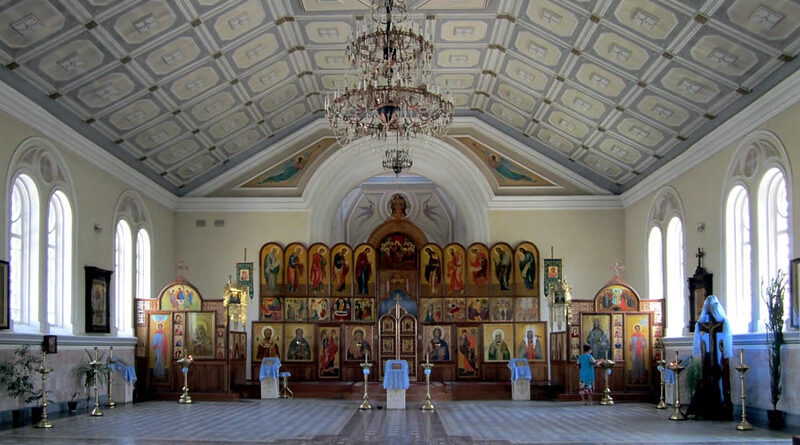No Christmas Here!
Tajikistan
Tajikistan considers itself a secular state with provision for freedom of religion, however, 98% of the population are Muslim and the state officially declared two islaimc holidays Eid-al-Fitr and Eid-al-Adha as state holidays. Since Tajikistan only became independent of the Soviet Union in 1991, there are a few remaining Eastern Orthodox Christians. For them, Tajikistan has spent quite some time paring back Christmas, with Father Frost, Russia’s version of Santa Claus, banned from television screens in 2013. Two years later, in 2015, Tajikistan outlawed Christmas trees and gift-giving at schools.
Tunisia
Although Christmas is not banned in Tunisia, and despite the 35,000 or so Christian inhabitants of Tunisia, there are almost no public celebrations of the holiday and it is a regular work day for the country.
Uzbekistan
Despite almost 10% of the country being Eastern Orthodox Christians, Christmas is not celebrated here. Instead, Uzbekistan’s New Year celebrations closely resemble our Christmas festivities, complete with trees and the exchange of gifts. However, it is a secular holiday. Soviet powers in Uzbekistan from 1924-1991 repressed the expression of religious belief, and the constitution of today’s Uzbekistan states that religious organizations and associations shall be separated from the state and equal before law. Almost 90% of Uzbekistan are Sunni Muslim.
Yemen
The war-torn state of Yemen, which has not has a functional government since 2011, has not officially observed Christmas for decades. Islam is the official religion of Yemen, however it is estimated to be the home of anywhere between 25,000 and 41,000 Christians.
Pakistan
The country’s small Christian population, around 1.6% of the population, remains full of insecurity about celebrating Christmas. In fact, there can be a threat to the lives of the people celebrating the events. The day of 25 December is a public holiday in Pakistan, but to commemorate the birthday of Muhammad Ali Jinnah, considered to be the founder of the nation. Christians, along with other religious minorities, are discriminated against in the constitution of Pakistan.
Saudi Arabia
Christmas trees or the holding of any Christmas-related festivals has been banned for decades in Saudi Arabia. The Saudi government even went so far as to say that giving a Christmas greeting to a friend or a co-worker is as good as an endorsement of the Christian faith – a big no-no in the Islamic Theocracy.
Somalia
In 2015, Somalia, which adopted Sharia law in 2009, banned the celebration of Christmas outright, warning that such Christian festivities could threaten the nation’s Muslim faith. According to correspondents, a number of the Somali diaspora had returned home after years of civil war, bringing with them some unwanted western customs.
North Korea
In North Korea, the country’s extreme, authoritarian interpretation of atheism as supposedly laid out in communist doctrine has led to the total outlawing of all things Christmas. It is suggested that the state is so shut away from the western world, that many North Koreans do not know of the birth of Jesus, or even of God.
Libya
What’s left of the government in this lawless, predominantly Muslim nation does not observe Christmas. However, 24 December is the country’s Independence Day. The celebration of independence from its Italian and French rulers in itself is important to Libyans, especially since col. Gadaffi banned the holiday for 42 years until 2011!
Mauritania
The government of Mauritania, despite having a small population of Catholics within its borders, chooses not to recognise them at all, with the most recent census claiming that 100% of the country is Muslim. Mauritania is not exactly a beacon of religious freedom — as recently as 2018, The National Assembly passed a law that makes the death penalty mandatory for anyone convicted of “blasphemous speech”.
Mongolia
The overwhelmingly Buddhist nation of Mongolia does not observe any public holidays around Christmas, and few Christians live here. Mongolians do however celebrate the New Year with a New Years Tree and lots of parties!
Afghanistan
The Muslim-majority nation has had a turbulent relationship with Christianity and its holidays for decades, and particularly since the Taliban rule of the 1990s. As a result, Christmas is almost never celebrated here, with those that choose to do so running the risk of persecution.
Algeria
Another Muslim-majority nation, Algeria has not observed Christmas in any official capacity since it gained its independence from France, a mostly Catholic nation, in 1962. For the few Christians that remain, the French-speaking Chaine 3 radio station broadcast Christmas services held at the Notre Dame d’Afrique in Algiers.
Bhutan
With a Christian population of around 10,000 (less than 1% of the country’s total), Christmas is not part of the Bhutanese calendar, where Buddhism takes precedence.
China
The country is officially a non-religious state, and so Christmas in China is another working day and schools, offices and shops all remain open. The past few years have seen a shift in attitudes towards the western world, and so nowadays Christmas has become an excuse to take part in jubilance and gift-giving, especially in young and vibrant urban centres.
Brunei
Brunei first introduced its ban on Christmas in 2014 over fears that celebrating it “excessively and openly” could lead its Muslim population astray. For the 1/3 non-muslim population, Christmas celebrations must be done so privately, and with permission of the state. There are only 3 churches in Brunei.
And in these countries it’s not Christmas … but
Cuba had a long tradition of celebrating Christmas. Families used to gather at the dining table, and used to go to mass after dinner. The Communist Regime led by Fidel Castro abolished the paid Christmas holiday in 1969, citing that workers were needed to continue the sugar harvest. In 1998, the Regime declared December 25 a leisure day, as requested by Pope John Paul II as a condition to visit the country. It is a one-day public holiday and it is celebrated only in the evening.
Azerbaijan, Bahrain, Cambodia, Comoros, Iran, Israel, Japan, Kuwait, Laos, Maldives, Mongolia, Morocco, Oman, Qatar, Thailand, Turkey, and the United Arab Emirates and Vietnam do not recognize Christmas as a public holiday, but the holiday is given observance.
In Taiwan, December 25 is observed in Taiwan as the Constitution Day, but is not an official holiday observed by civil servants of the central government.




